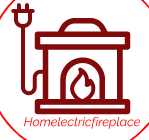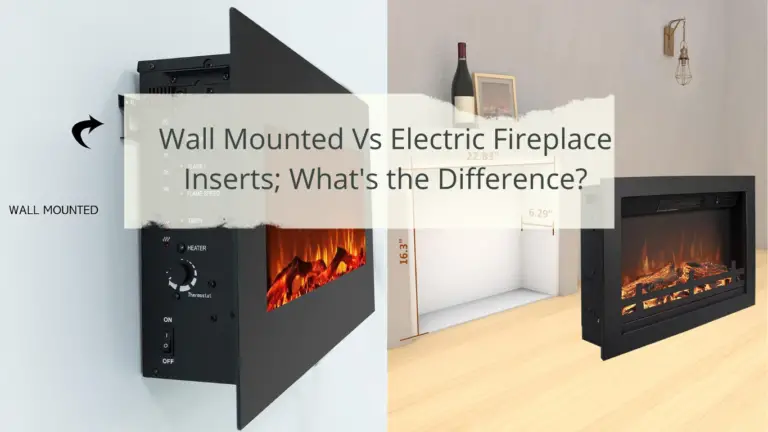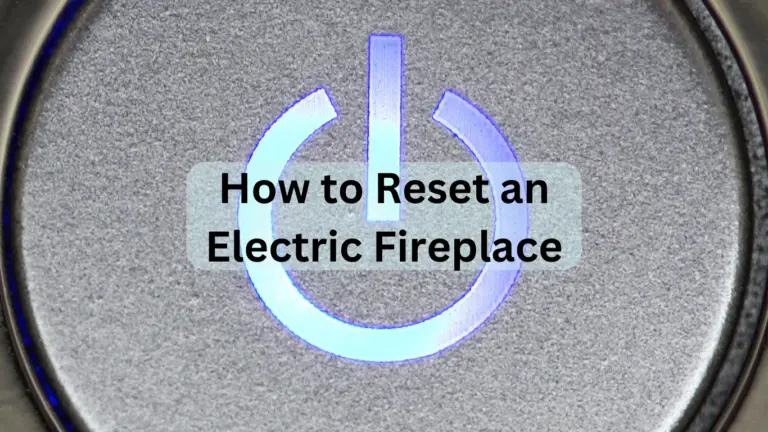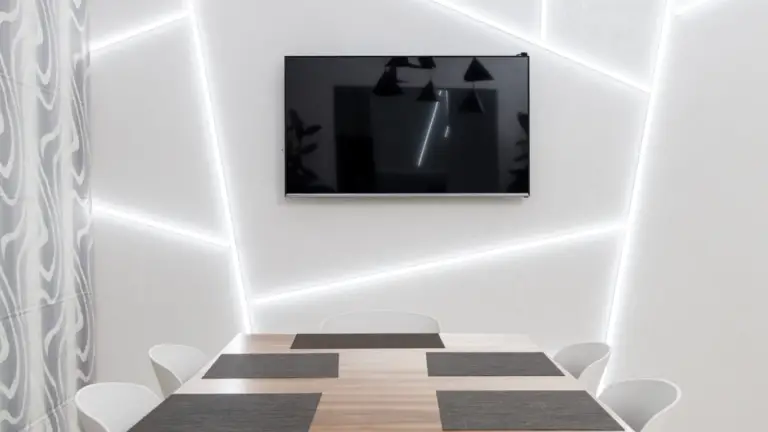Can you plug an electric fireplace into a regular outlet?
This post may contain affiliate links which means I may receive a commission for purchases made through links.
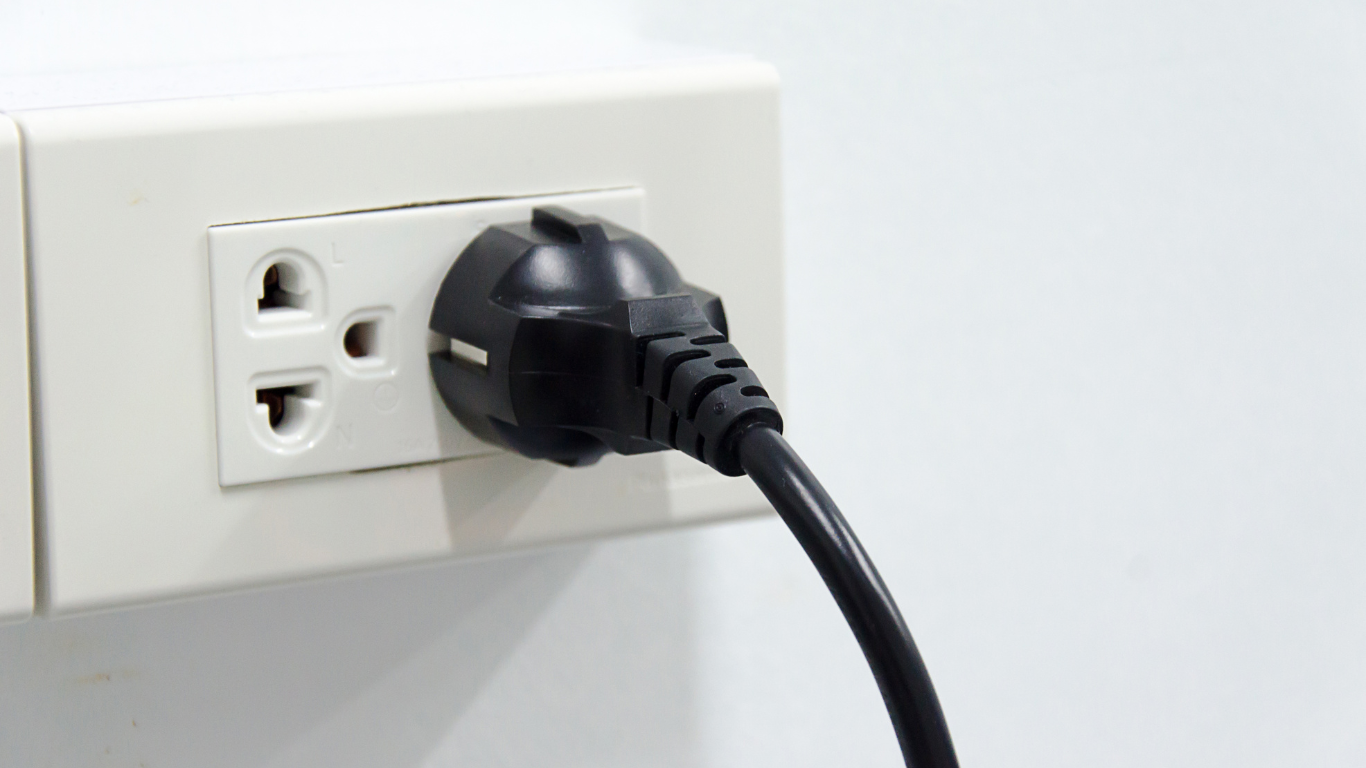
Electric fireplaces are increasingly becoming a popular alternative to traditional gas and wood-burning fireplaces. One reason for this is that they don’t need a chimney or venting. More importantly, these units do not need any fuel source as they are rely on electricity. But, can you plug an electric fireplace into a regular outlet?
Generally, if the electric fireplace has a power cord it’s safe to plug it into a standard power outlet. However, some specific electric fireplace models require additional electrical requirements before you can connect them to a regular outlet.
Read on to learn whether you can plug an electric fireplace into a regular outlet!
Important things to consider before plugging your electric fireplace into a regular outlet
First and foremost, check the amperage and voltage requirements of your fireplace before you plug it into a regular outlet. Most electric fireplaces run on standard household amperage (15A) and voltage (120V). Nonetheless, it’s still essential to check the specifications of the specific electric fireplace model you’re using. The outlet can damage the unit or prevent it from working properly, especially if the fireplace needs a higher amperage.
Secondly, you need to consider the location of your wall outlet. Generally, you should put your electric fireplace in a place where it will not be a fire hazard as most units tend to generate a significant amount of heat. For that reason, the power outlet should be easily accessible in case of an emergency and located away from any combustible/ flammable objects.
Lastly, check the overall load on the electrical circuit that connects to the regular outlet you’ll plug your electric fireplace into. In that regard, avoid connecting your fireplace to a circuit that is already being used by other high-wattage appliances. Otherwise, you can cause a circuit overload or potentially lead to a fire.
Other important electric fireplace outlet requirements
As already mentioned, the outlet requirements of an electric fireplace depend on the electric rating and specific model of the unit. However, there are other general guidelines you should consider before plugging your fireplace into a standard outlet. Some of those requirements include;
- Type of outlet. The ideal electric fireplace outlet should be a standard 3-prong outlet that is properly grounded.
- Circuit breaker. It’s a good idea to have the outlet of your electric fireplace on a dedicated circuit breaker. This will help to minimize the risk of electrical hazards and prevent overloading the circuit.
- Manufacturer’s instructions. Always read the manufacturer’s instructions or owner’s manual for specific guidelines and electrical requirements for that particular model.
Can you plug a built-in electric fireplace into a standard/ regular outlet?
Build-in electric fireplaces usually require 240V to operate, while the standard American outlet only supplies 12V. For that reason, you should not plug built-in electric fireplaces into a regular outlet. Instead, these units should be hard-wired into your home’s main electric circuit. On the bright side, hard wiring provides a clean look since no visible cords or wires are lying around.
Can you plug an electric fireplace into a surge protector, extension cord, or power strip?
Using a power strip, extension cable or surge protector would allow you to increase the distance between your electric fireplace and a standard electrical outlet. However, you should NEVER plug an electric fireplace into any form of extension from a standard outlet like power strips or surge protectors for safety reasons. Instead, you should only plug your fireplace directly into a regular power outlet, provided it’s not a built-in fireplace.
Here’s why!
If you understand how electric fireplaces work, you’ll notice that these units generate the flames artificially, mainly using a combination of rotating mirrors and LED lights to project the look of flickering flames. In addition, they have a form of heating unit integrated into their system like an infrared heater or fan-forced heater that works much like a space heater to produce heat. As a result, electric fireplaces end up using a lot of power which power strips and surge protectors cannot handle. This becomes even more problematic when other electrical appliances are plugged into the surge protector/ power strip as it creates a higher risk of overheating, leading to an electrical fire.
After all, surge protectors and power strips are only designed to protect lower power load equipment like computers from voltage spikes. However, they should not be used for high-power loads like electric fireplaces and space heaters as they may create a serious fire hazard.
Risks associated with plugging an electric fireplace into surge protectors, power strips, and extension cords
Plugging an electric fireplace directly into an extension cord, surge protector or power strip can pose the following risks;
-
Electrical shock
Connecting an electric fireplace to a power strip/ extension that is not rated for the high amperage and voltage needed by the appliances increases the risk of electrical shock.
-
Overheating
If the extension cord is too thin or improperly grounded, the wires can overheat, which can result in an electrical fire.
-
Overloading the electric circuit
Electric fireplaces usually draw a lot of power, which can cause the circuit to overload and make the wires heat up.
-
Damaging the fireplace
Surge protectors and power strips can cause voltage surges or spikes, damaging the electronic components of the fireplace.
On the bright side, you can easily reduce the risk of these hazards by plugging your electric fireplace into a properly grounded wall outlet that is rated for the amperage and voltage required by the unit.
Conclusion
To sum up, you can plug various types of electric fireplaces into a regular outlet, apart from built-in electric fireplaces, which should be hardwired into your home electric circuit. Also, it’s important to consider the amperage and voltage requirements, the overall load on the circuit, and the location of the outlet. Considering these factors will help you use your electric fireplace safely and effectively when plugged into a regular outlet.
